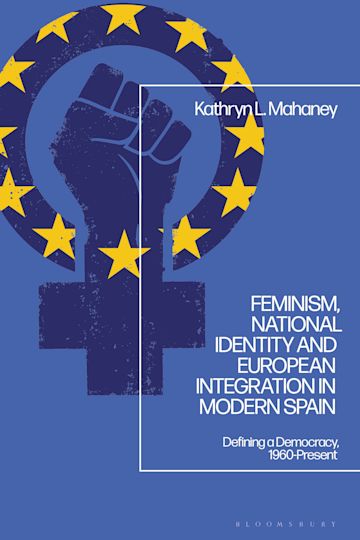For information on how we process your data, read our Privacy Policy
Thank you. We will email you when this book is available to order
You must sign in to add this item to your wishlist. Please sign in or create an account
This book explores the evolution of Spanish feminism in the context of European feminisms and institutions from the 1960s to recent times.
Beginning with Sección Femenina, the official Francoist women's organization, Feminism, National Identity and European Integration in Modern Spain traces the interplay between Spanish women's policy and international policymaking. In some cases, as with the Sección Femenina-championed Law of Political Rights (Ley de Derechos) in 1961, Spanish women's policy at least appeared more progressive than what Western democracies offered – notable at a time when Spain was considered backward. After Franco's death in 1975, Spain's democratic transition seemingly consolidated forward-thinking women's policy with a Constitution that guaranteed equality of the sexes in 1978, and with the creation of a national bureau charged with crafting women's policy, the Instituto de la Mujer (Women's Institute), in 1983.
Yet feminists found themselves marginalized in Spanish political decision-making, as Kathryn L. Mahaney argues so successfully in this study. Mahaney reveals that women ultimately influenced domestic policy not by acting within national networks but by leveraging European connections, particularly after Spain joined the European Economic Community (EEC) in 1986. The book shows that Spanish feminists worked through the EEC to gain international approval of policies that had met domestic opposition, and did so by representing them as necessary litmus tests of nations' democratic integrity. Their proposals were shaped by the specific context of Spanish feminism, but also by Spanish debates about what rights democracies should grant women and what equality in a post-fascist nation should encompass. This ground-breaking study explains that, in turn, these processes shaped both Spain's and the European Union's much-prized self-identities as democratic communities.
| Published | Apr 18 2024 |
|---|---|
| Format | Ebook (PDF) |
| Edition | 1st |
| Extent | 224 |
| ISBN | 9781350195127 |
| Imprint | Bloomsbury Academic |
| Illustrations | 10 bw illus |
| Publisher | Bloomsbury Publishing |
Free US delivery on orders $35 or over
Your School account is not valid for the United States site. You have been logged out of your account.
You are on the United States site. Would you like to go to the United Kingdom site?
Error message.

